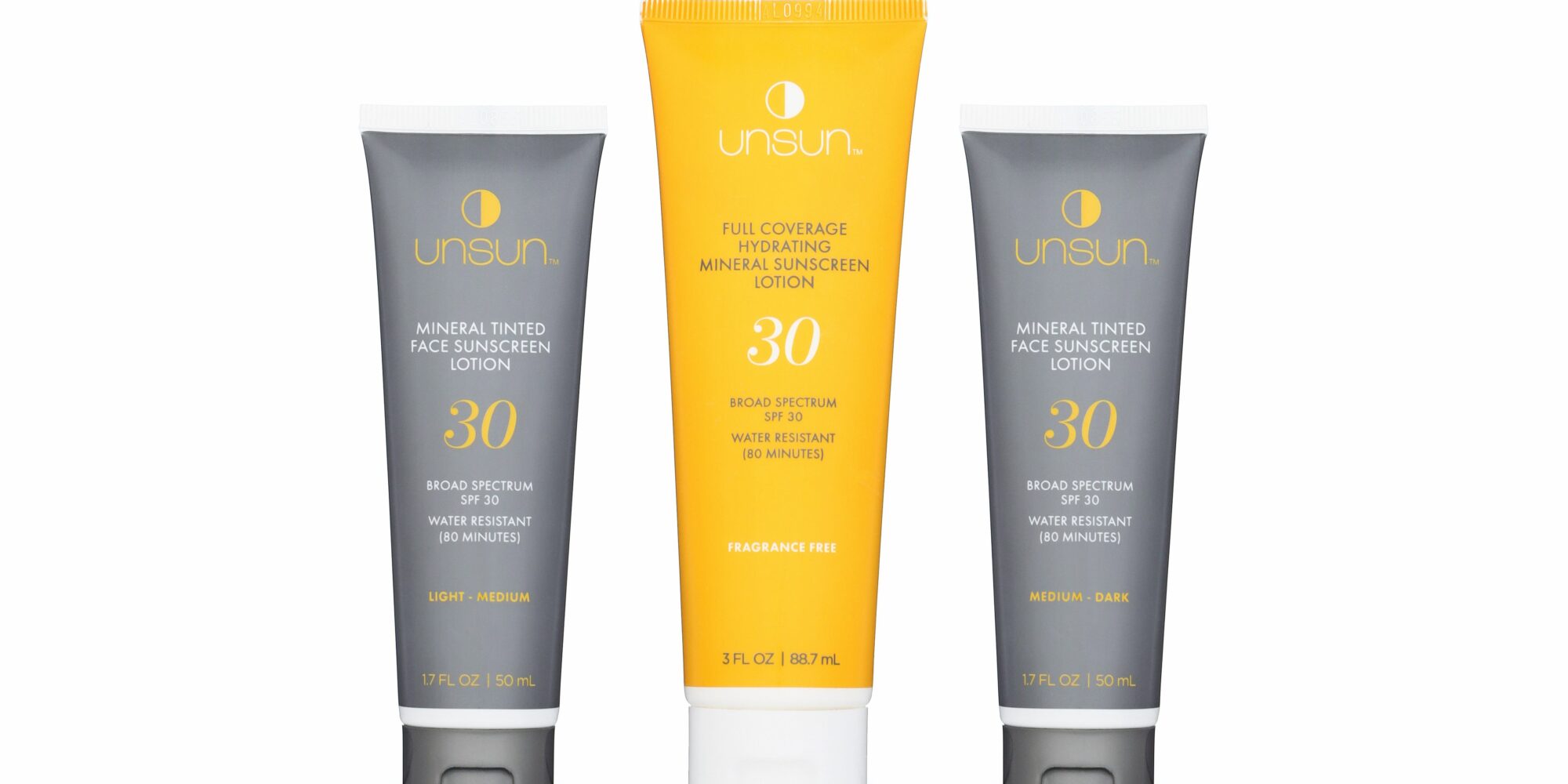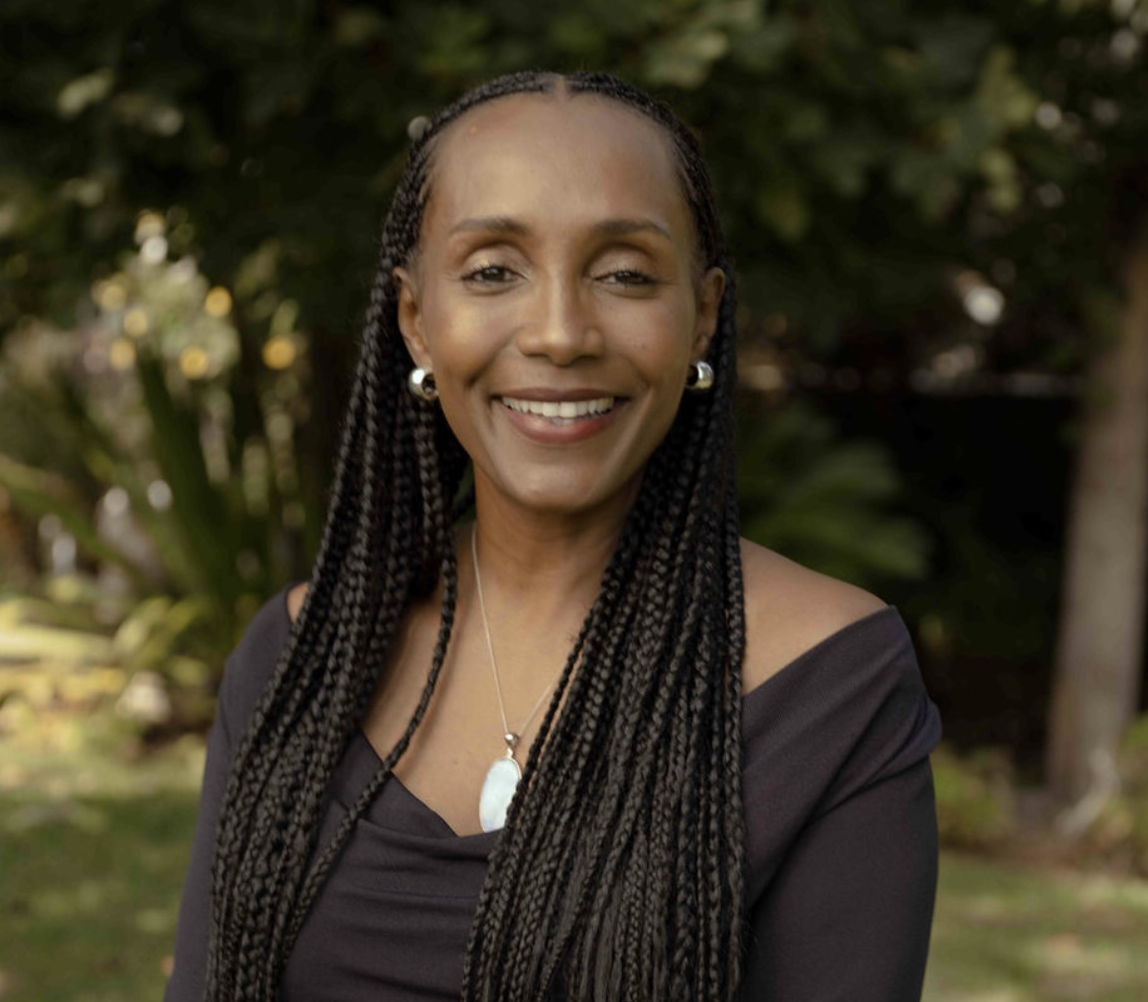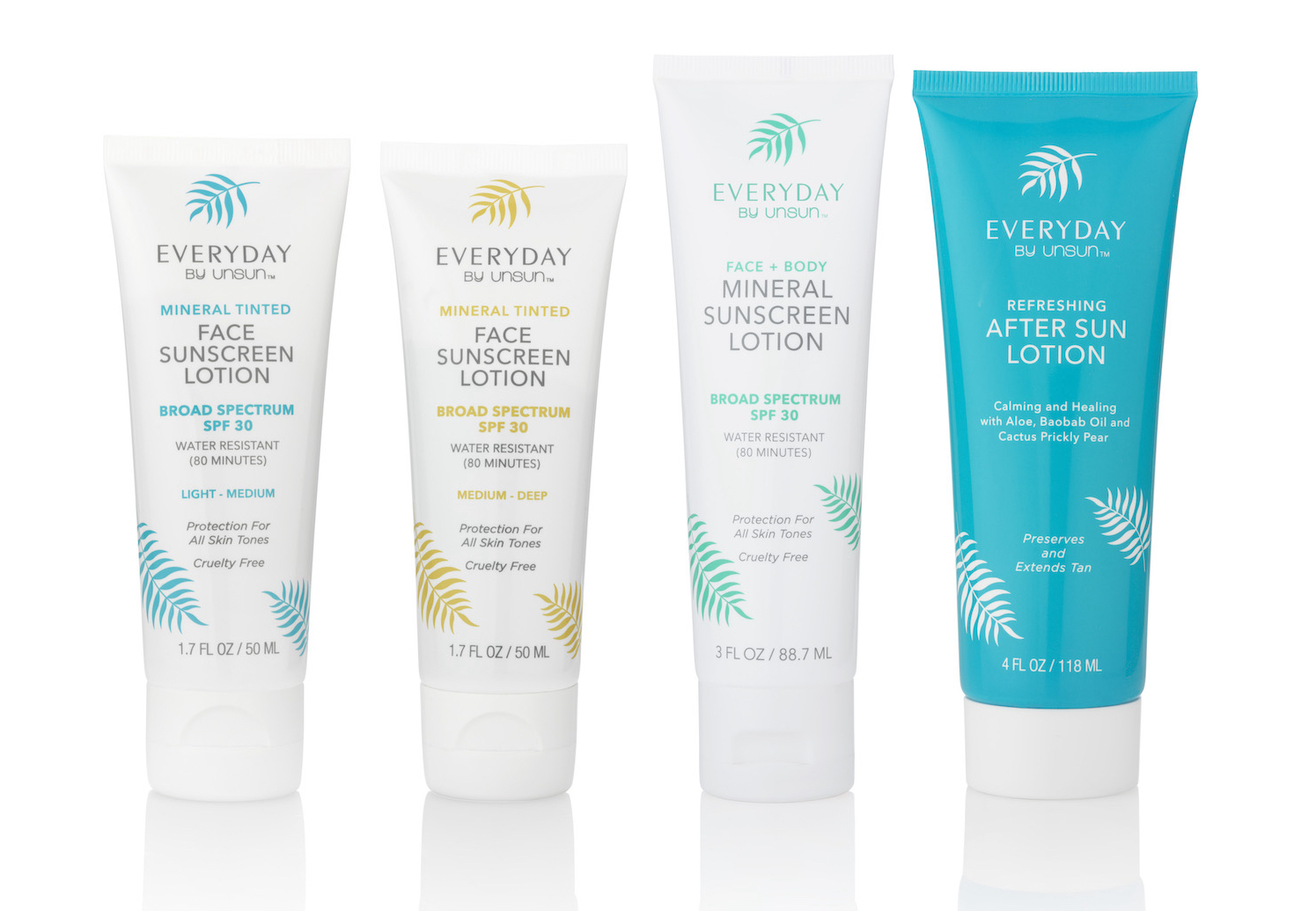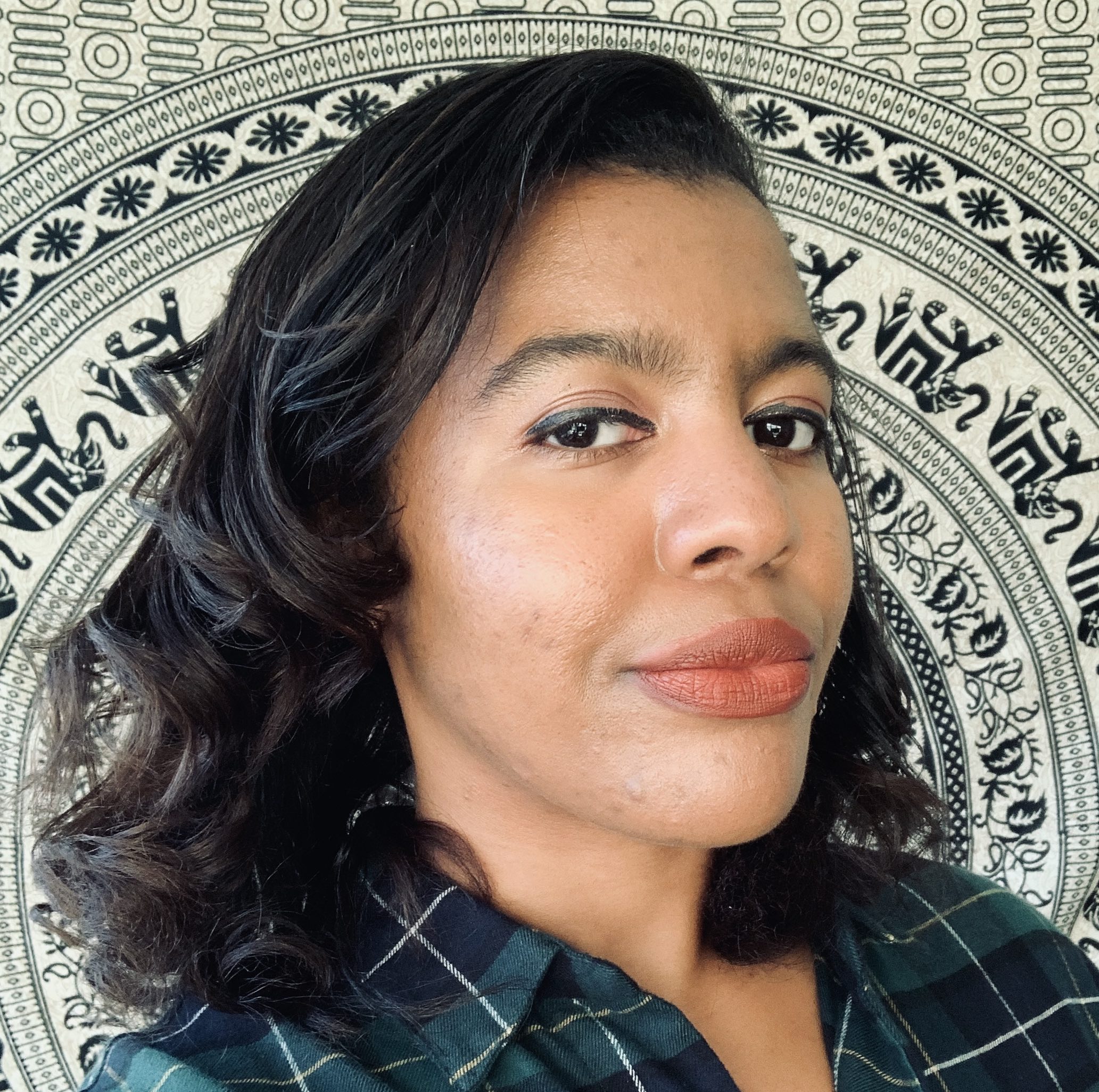
Unsun’s Katonya Breaux On Bringing Much-Needed Inclusivity To Sun Care
In 2013, Katonya Breaux went to see a chemist about creating a mineral sunscreen for herself. She’d just moved back to Los Angeles from New Orleans and wanted one that didn’t leave a god-awful white cast on her face.
A chemical sunscreen was out of the question because she’d discovered a few years earlier that chemical options irritated her skin and, if they happened to get in her eyes, made her mascara and eyeliner runny. “I’ll never forget that,” she laughs. “It was so annoying.”
The chemist took Breaux’s formulation wish list and delivered exactly what she desired: an elegant sunscreen that wasn’t irritating and didn’t leave her looking like a ghost. The product worked wonders for her family members as well. At the time, Breaux wasn’t thinking about becoming a beauty brand founder. She’d spent 20 years in construction and wasn’t familiar with the beauty business.
But she loved the formulation so much, and it looked good on everyone. “As a Black woman, I wanted to wear sunscreen,” says Breaux. “I shouldn’t have to be relegated to the nasty chemical ones to feel protected. I wanted clean mineral-based sunscreens, too.”
One day, after a conversation with her oldest son, the singer-songwriter Christopher Francis “Frank” Ocean, she figured, why not try beauty entrepreneurship? Maybe she could build a brand around her unicorn sunscreen with a component dedicated to educating women and people of color to protect our skin from the sun. It was unplanned, but Breaux knew they deserved a high-quality product.
Sunscreen is a complex topic for Black folks and people of color. Recent research has called into question whether UVA/UVB rays are the cause of melanoma among Black people. A 2021 study found no scientific proof that sun exposure causes skin cancer in people of color.
Another from 2005 backs the finding up, and several reach no conclusion at all, indicating more study and data is needed in this area. The reasons for higher Black mortality rates from melanoma include delayed diagnosis, limited access to healthcare and racism in the healthcare system.
Still, the American Academy of Dermatology emphasizes that all people regardless of race benefit from sunscreen to ward off sunburns and help with signs of aging. For those purposes, sunscreen that isn’t worn is the worst kind. Launched in 2016, Breaux’s sun care brand Unsun is dedicated to urging more people to actually wear it.
Today, Unsun, winner of the 2022 Inclusivity Champion Beacon Award, is in retail destinations for prestige beauty, including The Detox Market, Goop, Nordstrom, Revolve and Macy’s, and its mass-market offshoot, Everyday by Unsun, is in around 6,100 CVS stores. Being on the shelf is one thing, but maintaining a presence in the community it serves is also important to Unsun, which focuses on being seen along with seeing those who’ve been ignored by the beauty industry.
In a conversation with Beauty Independent, Breaux talks about the significance of inclusivity, what she’s doing to be successful in the mass market (Everyday by Unsun has more major retail rollouts ahead), and why targeting people of color is one of the smartest marketing strategies around.
What strategies has Unsun pursued to be successful in the mass market?
We are trying a guerilla approach, just trying to be everywhere. The marketing domain has shifted. Of course, we’re doing traditional Google ads and that sort of thing. We’re offering a lot of discounts.
We’ve already scheduled out all of our 2023 promotions, and I’m like, “Let’s do as many as we can because we’re the new kids on the block.” And I’d rather see smaller margins just to get our name out there, get more brand awareness and really just get comfortably placed on these shelves.
Now that we’re going into a couple of big national retailers, it helps because people will be seeing us more, but it also makes it even more important to get on the ground, do all the promotions and do everything!
As you put your brand out there, what have you learned about the sunscreen market?
I’ve learned that what we started has obviously picked up steam. Sunscreen is a huge $25 billion market. We were the first company to come on the market that really targeted people of color, who really said, “Look, we see you.”
We’ve been given a bad deal. We have not been encouraged to use sunscreen. It has not been made with us in mind. We’ve not been in the ads, we were kind of screwed over. So, we came out saying, “Yes, Black people need sunscreen, people of color need sunscreen,” and we wanted them to have a clean option that wasn’t full of chemicals.
Well, apparently, everyone else has gotten the memo! Everybody’s jumping in. There’s a lot of movement and activity. So many brands, big and small, are popping up saying the same thing. The good news is that people of color are taking notice, and more are getting the message that they need sunscreen. What we hoped to achieve is definitely being done, and we’re really happy about that.

What have you noticed about the sunscreen market becoming more inclusive?
A lot of the companies are speaking to people of color, and even if their products haven’t changed, they’re speaking the language. Speaking the language is making people of color feel acknowledged.
There’s a lot of the “no white residue” language from the big brands that never was never there before. What’s going on behind the scenes, I can’t speak to that, but, in terms of inclusivity language, marketing campaigns and ads, brands are speaking more to people in that demographic.
How is Unsun working to become more inclusive and fill gaps in the market?
When we came on the scene, we came up with one hue, which was the medium dark shade. It worked really well on a range of complexions, from people who have an olive skin tone to light-skinned Black people or a Hispanic person to a chocolate woman or a man.
Then, I thought, well, we’ve been subjected to exclusivity. I don’t want to be a brand that does that because exclusion won’t stop until we all start focusing on including everyone. I felt that was important.
So, we launched the next shade, medium, which is specifically for lighter skin tones. I wanted to send a message that in order to stop this trend—a nice way of calling it—of excluding people of any particular race or shade, companies need to include everyone. I thought I’d start with that and maybe others would start following suit. It was a lofty dream, but I do feel like we’re starting to see that.
Why is targeting people of color an important business strategy?
Because no one has. We were an underserved community of people. I was a Girl Scout, so I spent a lot of time outdoors. And all of the little white girls would get slathered with sunscreen. I was passed over. My mom never bought it, and I had three brothers who were lifeguards. We were always at the public swimming pools in the summer. It just wasn’t something that we grew up thinking that we needed.
It wasn’t until a trip to the dermatologist led me to understand that we were duped. I wanted to do something about that. We don’t get melanoma as often as a white person might, but our mortality rates are higher, and it’s because skin cancer isn’t even on our radar. No one taught us that it should be.
How is the brand working to combat this idea that Black people and other people of color don’t need to protect their skin from the sun?
I do a ton of interviews and a ton of podcasts. There’s rarely an interview I’ll turn down because I feel like somebody is going to hear the message. So, whenever I’m asked, I take the opportunity.
We’re also out and about doing events and talking to people. We had a booth at a melanoma research foundation 5K this weekend. When we first started doing events, people who came by our booth would say, “Oh, I’m never in the sun, I’m just in my car, and I go straight to work. I don’t need sunscreen.” We’re getting much less of that, and people are really engaging.
We reiterate constantly that the sun knows no shade. The sun does not discriminate. The message is part of our marketing, it’s a part of everything that we do.

How does this strategy of being present and in front of people draw retailers?
We’ve been really fortunate that retailers have seen us, and I think it’s because of what we stand for. It’s because we were a very early voice on the scene about inclusivity. It kicked off even more so after the Black Lives Matter protests following George Floyd’s death, and we were positioned for those opportunities.
When a retailer goes and looks at some of our talks, they hear discussions of inclusivity. They hear talk of a community that was largely ignored in terms of a very important need, which is sunscreen. They hear talk of clean ingredients and sustainable components. Our story says something that they’re interested in and that has drawn them to us.
This interview has been edited for clarity and brevity.





Leave a Reply
You must be logged in to post a comment.